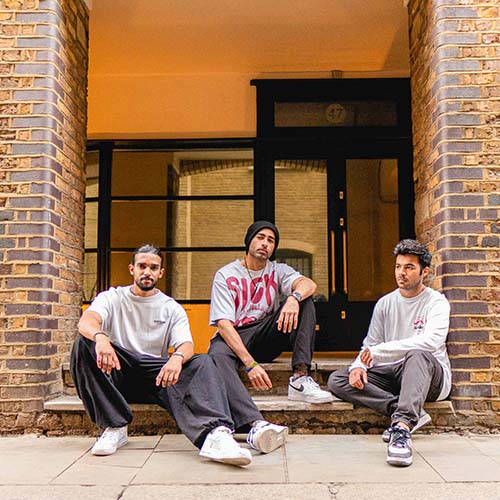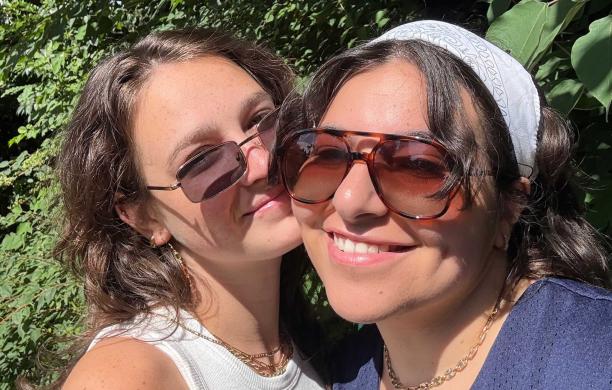Moonlighting. It doesn’t have the bad rap it used to. Today people find ways to make a living and make a life.
Moonlighting is our series about the radically interdisciplinary lives of Lehigh alumni who are successful in two professional areas, and where a secondary “job” is primarily fun and fulfilling.
In this edition we meet a consultant and entrepreneur who also dances around the world.
Aakash Phulwani ’17
Electrical engineering
Finding Lehigh
Setting foot on South Mountain marked Phulwani’s initial venture into the United States. Hailing from Tanzania and belonging to the local Indian diaspora, he received a suggestion from a college counselor to explore the possibilities at Lehigh. Another friend also endorsed Lehigh, affirming it offered everything Phulwani sought in a university. Upon researching, Phulwani concurred.
 The first semester, a difficult adjustment for many freshmen, proved challenging as the distance from home weighed on him. To overcome this, he turned to dance as a means to connect with his cultural roots.
The first semester, a difficult adjustment for many freshmen, proved challenging as the distance from home weighed on him. To overcome this, he turned to dance as a means to connect with his cultural roots.
Dancing on campus
Dance became Phulwani’s welcoming embrace at Lehigh, as it unites students from diverse backgrounds. Despite the uncertainty accompanying his arrival on campus, the experience exceeded his expectations. "I never felt compelled to alter my identity to fit in," he says. "I maintained my authenticity and seized the chance to highlight my culture. I forged incredible friendships and felt supported in every facet of my life."
Despite the demands of his major, dance emerged as his primary outlet. Phulwani immersed himself in training with the Afro dance and hip-hop dance teams. Engaging in various campus organizations, he took the lead in hosting cultural and dance events, notably Dancefest — an annual showcase featuring all dance teams at Lehigh, drawing an audience of 1300.
Finding consulting
He had an internship in electrical engineering, which helped Phulwani realize that he wanted to interact with people more. He liked solving problems and thought that consulting might be a better fit. He applied to a tech advisory position at EY, and the company representative liked his energy. Of course, he landed the role.
He worked his first three years at EY in New York City. Then he ventured across the Atlantic and worked three years in London. Over that time, he worked in different industries and domains, helping companies with tech strategy, minimizing risk, road mapping plans, and organizational change management. EY selected him as the firm’s UK nominee for the Young Consultant of the Year award.
Dancing around the world
While work had him busy, Phulwani didn’t lose his artistic passion for dance. He kept training in New York. Together with friend Ashoka Singh ’19, he had an idea: What if they blended Bollywood and Afro dance styles? AfroDesi was born. They hosted a workshop and posted a video on Instagram, and it was received well. Months later, every dance workshop was sold out.
It helped that Afrobeat artists were hitting mainstream audiences over pop radio as well as winning Grammy Awards. Soon the pair was hosting workshops and dance parties in Los Angeles, Chicago, San Francisco, and Washington, D.C. A UK tour sold out. Then COVID-19 hit and paused growth. But when the pandemic ended, the duo’s events heated right back up.
 Intersections
Intersections
Four generations in the past, Tanzania thrived as a vibrant trade port. Fast forward to today, and dance and music have become exports, yet there's a noticeable lack of local support for dance groups, hindering the creation of more opportunities. Conversely, Tanzania isn't lacking in studios, workshops, or resources to nurture dancers.
A sense of pride emanates as Phulwani reflects, "I am proud of where I come from and how people worldwide are praising our music and dance. I hope we can bring it to a broader audience.”
What’s next
Phulwani recently left EY — which was not an easy decision. He and a friend from Tanzania formed a tech startup called Switch Africa, a fintech company to help small and medium enterprise businesses in Africa digitize operations and access capital to propel their growth. He is confident in their business plan and has saved money to help in his transition from worker to employer. But he is prepared to bootstrap.
It helps that he will be home and have family support. Phulwani and his business partner are actively involved in locating angel investors and seed funding. “Small business is the backbone of the African economy,” he says. “We are poised to help them scale up.”


